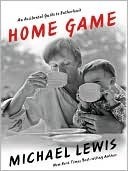More on this book
Community
Kindle Notes & Highlights
Here’s the question: Why should social interaction with couples who parent even slightly differently so quickly lead to internal strife? How can putatively important and deeply considered decisions—how to parent, and what role the father should play—be so easily undermined by casual contact with a different approach? Why should even fictional representations of different parenting styles be an invitation to argue about who should do what?
One of the many things I dislike about being a grown-up is the compulsion to have a purpose in life. People are forever asking why you are doing whatever you happen to be doing and before long you succumb to the need to supply an answer. The least naturally ambitious people can have ambition thrust upon them in this way. Once you’ve established yourself as a more or less properly functioning adult, it is nearly impossible to just go somewhere and screw off.
If you have a gift for frightening new parents, your fortune in this world is secure. New parents are not rational; they worry about all sorts of things that it makes no sense to worry about.
The parenting books don’t tell you where to go when your first move doesn’t lead to psychological checkmate. The only thing I had going for me was the toddler’s indifference to logic.
The fact, as opposed to the theory, of life with a small child is an amoral system of bribes and blackmails. You do this for me, you get that. You don’t do this for me, you don’t get that. I’ve always assumed that if a small child has enough joy and love and stability in her life, along with intelligently directed bribes and blackmail, the rest will take care of itself. And my approach appeared to be working. Right up until the birth of her sister, Quinn excelled at childhood and did so, it seemed, effortlessly. It honestly never occurred to me that I should be in some way shaping her. I was
...more
THE THING THAT most surprised me about fatherhood the first time around was how long it took before I felt about my child what I was expected to feel. Clutching Quinn after she exited the womb, I was able to generate tenderness and a bit of theoretical affection, but after that, for a good six weeks, the best I could manage was detached amusement. The worst was hatred.
Here is the central mystery of fatherhood, or at any rate my experience of it. How does a man’s resentment of this…thing…that lands in his life and instantly disrupts every aspect of it for the apparent worse turn into love? A month after Quinn was born, I would have felt only an obligatory sadness if she had been rolled over by a truck. Six months or so later, I’d have thrown myself in front of the truck to save her from harm. What happened?
THE FIRST RULE of fatherhood is that if you don’t see what the problem is, you are the problem.
I’ve never been able to feel whatever it is I’m meant to feel on great occasions, so I shouldn’t expect them to, either. But of course I do.
A family is like a stereo system: A stereo system is only as good as its weakest component, and a family is only as happy as its unhappiest member. Occasionally that is me; more often it is someone else; and so I must remain vigilant, lest the pleasure of my own life be dampened by their unhappiness.
On top of the risk that you might actually screw up your child is the risk that, even if you don’t, she’ll think you did and blame you for it. Finally one morning, as I drive Quinn to school, I look in the rearview mirror and ask, “You know that cake I ate when you couldn’t have dessert?” “What cake?” “You know that note you wrote and stuck on my mirror last week?” “What note?” she asks. I remind her, but she has no idea what I’m talking about. Not the first clue. She doesn’t even remember her sister’s tears. “The problem with me,” she says seriously, “is that I only remember the stuff that is
...more
If you want to feel the way you’re meant to feel about the new baby, you need to do the grunt work. It’s only in caring for a thing that you become attached to it.
It fails, however, to get across with sufficient clarity the final rule of fatherhood: If you’re not bothered by it, or disturbed by it, or messed up from it, you’re probably doing something wrong that will mess up your kids. You’re probably doing something wrong anyway, but that’s okay: You can only do so much to mess up your kids. They can always get back at you, in therapy or their memoirs. But if you don’t monitor these small creatures closely, they have the power to screw you up forever. So watch out for yourself—but don’t let anyone know that’s what you’re doing.


